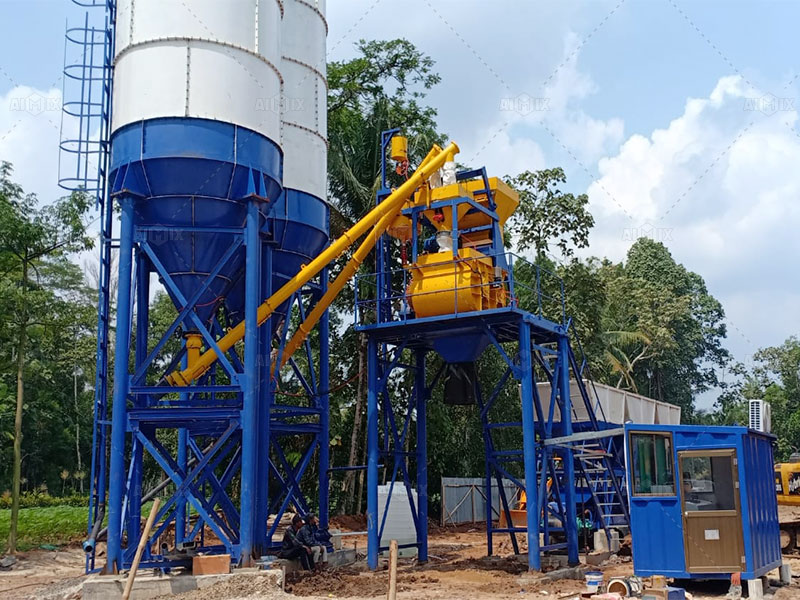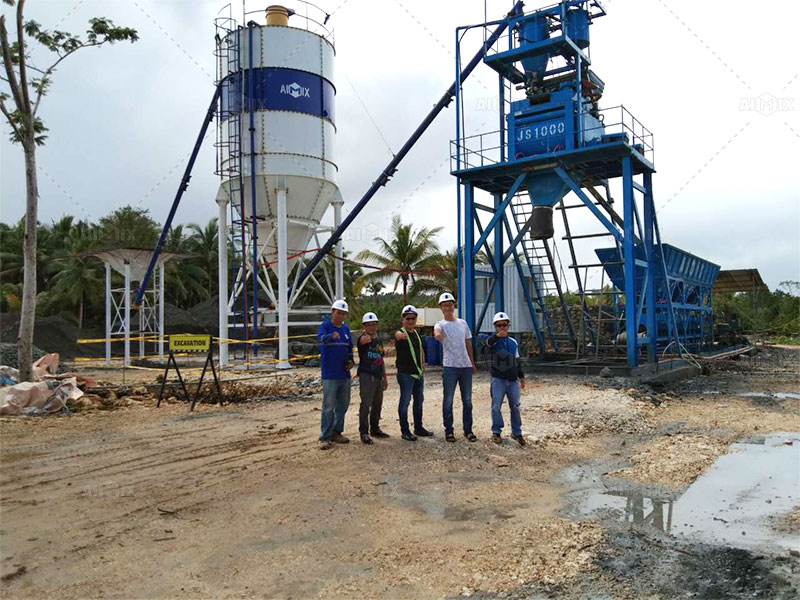In the dynamic world of construction, cost control is a critical aspect that directly influences project viability and success. Batching plants, serving as the nucleus of concrete production, play a significant role in project costs. Effectively managing and controlling batching plant costs is essential for optimizing budgetary allocations and ensuring the financial health of construction endeavors.
Thorough Project Planning:
The foundation for controlling batching plant costs begins with comprehensive project planning. A detailed understanding of project requirements, including the volume and specifications of concrete needed, allows for accurate sizing and selection of a batching plant. Proper planning minimizes the risk of overinvestment in a plant that exceeds project needs, contributing to concrete batching plant price control from the outset.

Optimal Batching Plant Selection:
Selecting the right batching plant for a project is pivotal in cost control. Different projects have varied requirements, and the choice of a batching plant should align with the specific needs of the construction site. Consider factors such as production capacity, mobility, and customization options to ensure that the selected plant is a cost-effective fit for the project’s scope and scale.
Efficient Utilization of Resources:
Resource optimization is central to controlling batching plant costs. This involves maximizing the use of available resources, such as labor, raw materials, and energy. Operators should focus on minimizing downtime, ensuring that the ready mixed concrete batching plant operates at its maximum capacity during working hours. Efficient resource utilization contributes to increased productivity, reduced costs, and improved overall project efficiency.
Regular Maintenance and Preventive Measures:
A well-maintained batching plant is a cost-efficient one. Regular maintenance checks and preventive measures help identify and address potential issues before they escalate into costly problems. Timely inspections of key components, lubrication, and replacement of worn parts contribute to the longevity of the plant, reducing the need for unplanned maintenance and minimizing associated costs.
Energy Efficiency Measures:
Energy costs constitute a significant portion of the operational expenses for batching plants. Implementing energy-efficient measures can lead to substantial savings throughout a project. This includes the use of energy-efficient equipment, optimizing batching schedules to leverage off-peak energy rates, and incorporating energy-saving technologies. A focus on energy efficiency not only controls costs but also aligns with sustainable construction practices.

Streamlined Raw Material Procurement:
Efficient procurement of raw materials, such as aggregates and cement, is vital for cost control. Establishing reliable and cost-effective supply chains ensures a steady flow of materials to the batching plant. Negotiating favorable terms with batching plant manufacturers, exploring bulk purchasing options, and optimizing delivery schedules contribute to cost savings in the procurement process.
Optimized Batching Processes:
Precision in the batching process is crucial for controlling costs. Implementing advanced batching control systems allows for accurate measurement and dispensing of materials, reducing waste and ensuring that the right mix proportions are achieved consistently. Automation can also improve the efficiency of the batching process, minimizing the potential for human error and enhancing overall operational efficiency.
Strategic Equipment Investment:
The strategic investment in batching plant equipment can impact long-term costs. While it may be tempting to opt for lower-cost equipment initially, it is essential to consider the overall lifecycle costs, including maintenance, durability, and efficiency. Investing in high-quality, reliable equipment may incur a higher upfront cost but can result in long-term savings and reduced operational disruptions.
Training and Skill Development:
The proficiency of operators significantly influences the efficiency and cost-effectiveness of batching plant operations. Providing training and skill development opportunities for operators ensures that they are well-versed in the optimal use of equipment, adherence to safety protocols, and troubleshooting techniques. Skilled operators contribute to smoother operations, reducing the likelihood of errors and minimizing downtime.
Continuous Monitoring and Analysis:
Ongoing monitoring and analysis of batching plant operations are essential for harga batching plant control. Regularly assessing performance metrics, analyzing consumption patterns, and identifying areas for improvement allow for proactive decision-making. Continuous monitoring provides the data needed to implement adjustments, optimize processes, and control costs effectively throughout a construction project.
Conclusion:
Controlling batching plant costs is a multifaceted endeavor that requires strategic planning, efficient resource management, and a commitment to ongoing optimization. Construction professionals who prioritize careful planning, equipment selection, maintenance practices, and operational efficiency can successfully navigate the challenges of cost control in concrete production. By implementing these strategies, stakeholders can ensure that batching plant operations contribute to the overall success of construction projects while maintaining financial prudence.

